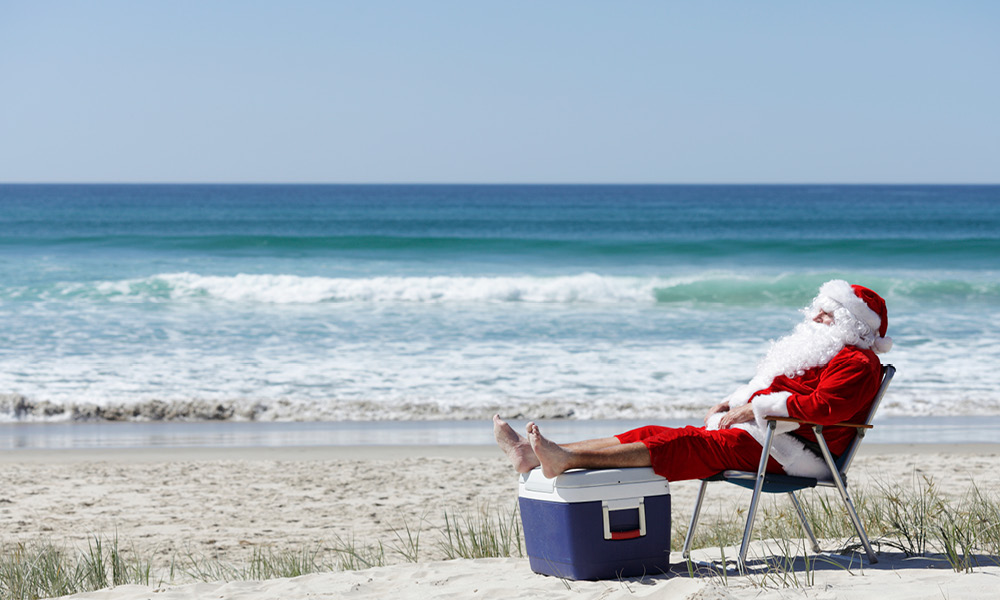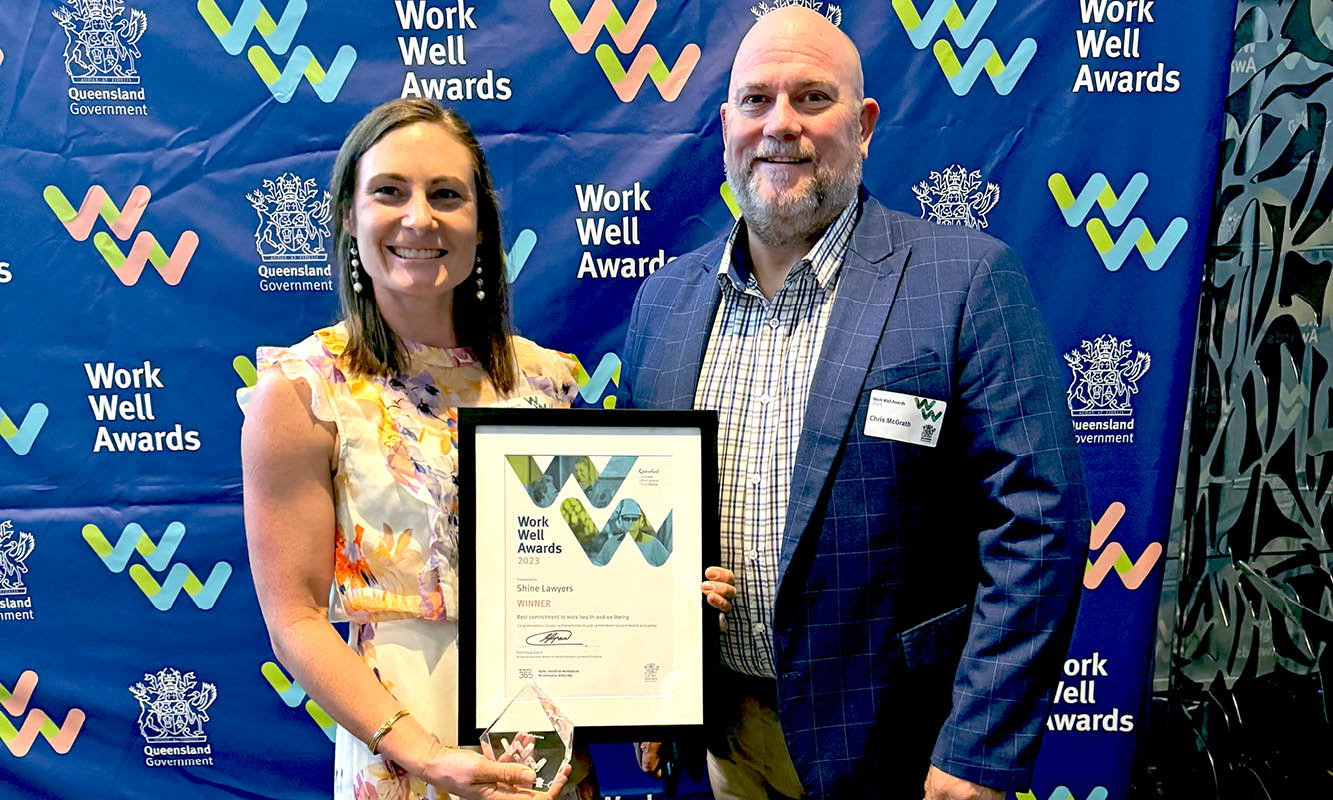Christmas is meant to be a time of joy, spending quality time with family and loved ones, and re-focussing on what really matters in life. In reality, Christmas is often also a time of increased stress and the heavy weight of big expectations. After the kind of year we’ve all had, having a proper break and giving yourself the gift of rest and relaxation is critical to start the New Year with refreshed energy. Here are some tips on how to achieve this.
After long months of uncertainty and ever-changing rules and requirements, collective levels of exhaustion and fatigue are running high. This makes it critical to take a break over the upcoming Christmas season to recharge our near-empty inner batteries. However, the “jolly season” can be a source of further stress and anxiety for many, including concerns about the ability to take leave from work, a mountain of social obligations to fulfil, and the weight of high expectations which do not always hold up to reality.
Below are some tips that will help you recharge and enjoy yourself during this special time of the year, so that you can start the new year with refreshed energy levels and a palpable boost to your overall wellbeing. Make sure you also check out the video with nutritionist, author, wellness coach and owner of My Food Culture, Kali Gray–her tips and suggestions will build on these strategies discussed in the article.
Less doing, more being
Don’t get lost in more busy-ness after a particularly demanding year which has left most people feeling frazzled and both physically and mentally tired. Christmas, including the weeks leading up to it, is typically a busy time of the year–and you may be tempted to further increase your “doing mode” to meet the social expectations of attending (or organising) never-ending end-of-year catch-ups, family get-togethers and work functions. But saying yes to everything is likely to leave you feel even more fatigued in January, and will allow little room for the three R’s: reflect, recharge and reset.
Be realistic about your capacity during the festive season and share responsibilities amongst family and friends, so that you can prioritise activities that will introduce calmness, increase your wellbeing and prepare you for the new year ahead:
- Reflect: Use the end of year as a time for reflection on past experiences, lessons learned and the things you are grateful for in your life. What are the kind of expectations and attitudes you are ready to leave behind, and which new valuable insights and positive habits you want to take with you into the future?
- Recharge: You probably take great precautions to not let your mobile phone or car battery run empty. Don’t neglect your body, mind and spirit, either! Use your break to do things you truly enjoy and that help you relax, e.g. a family day on the beach, curling up with a good book or wandering through an art gallery – or anything else you find enriching but which you rarely find the time to do.
- Reset: What is it you truly want to do or achieve next year? What matters most? Connect with your core values and set meaningful goals for the new year. Make sure that your priorities also include self-care and a focus on your health and wellbeing.
Really disconnect from work
We do need regular breaks to allow our bodies and mind to recover after stressful periods. Taking time to replenish depleted energy levels is necessary to improve your productivity levels and can be critical to prevent burn-out, a condition described by the WHO as “a syndrome conceptualised as resulting from chronic workplace stress that has not been successfully managed1”. Having a holiday is neither selfish nor a sign of lack of commitment to one’s work – it’s a crucial element of the long-term sustainability and quality of your legal practice. Being chronically exhausted will diminish your capacity to serve your clients well, make good decisions and remain productive. It may be helpful to think of your career as more of a marathon than a sprint: taking quality time off is essential for running and maintaining pace across the whole distance! Tips to enable a stress-free holiday include:
- Let your clients, team and other important stakeholders know in advance about your planned break, when you will be back and what to do in urgent situations (e.g. whether anyone else can provide assistance in your absence).
- Manage expectations about your accessibility. Ideally, you want to be able to completely disconnect from work – but knowing that key people can reach you in an emergency may help you switch off and keep you from feeling pressured to check emails “just in case”.
- If you are a sole practitioner, put plans and processes in place that will enable you to have quality time off. This may involve taking care of essential business functions for an hour in the morning or evening, and then sticking to these boundaries. If your clients know that you are checking your emails throughout the day, you open the door to endless intrusions which will keep you from ever relaxing.
- As an alternative, you may want to consider hiring a locum to take care of basics like responding to clients’ calls or emails.
Cultivate kindness and compassion
Unfortunately, Christmas is not a joyous time for everyone–uncomfortable gatherings with the extended family, pressure to participate in increased social activity, struggling with financial issues or dealing with loneliness can increase symptoms of anxiety, depression and stress. Remember to be mindful and sensitive to the reactions of others, for example, someone’s refusal to take part in the office cheer which you may perceive as rude. People have their own backstories which you will not always be aware of. Try to adopt a mindset of gentle curiosity rather than judgement, and cultivate a compassionate approach in your interactions.
If Christmas is a difficult time of the year for you, consider giving your own happiness levels a boost by doing a kind act for someone else, for example, donating some of your time to a charity of your choice, organising gifts for disadvantaged children, or volunteering at a local homeless kitchen. Being of service to others can increase individual wellbeing, lift your spirits, and enhance a sense of meaning and purpose in your life.
Support others to have a break
As a leader, encourage your team to take leave, and role model the type of self-care behaviour you want to see in others. People may be hesitant to have a break because of wrong perceptions, for example, believing that taking time off to disconnect may be seen as a lack of commitment or not taking one’s job seriously enough, concerns around burdening team colleagues with additional work, or fearing excessive workloads due to required catch-up work upon their return. You can dispel and alleviate these beliefs by clearly communicating that taking leave will not be interpreted as “slacking off”, and openly discussing expectations around supportive behaviours that enable restful time off for team members. Remember that it can take a village to take a holiday.
If you would like to learn more, don’t hesitate to reach out to the QLS Solicitor Support service on ethics@qls.com.au or p. 3842 5843 to speak to someone in a judgement-free and supportive environment.
______________________________________________________________________________1 Burnout is further characterised by three dimensions: feelings of energy depletion or exhaustion; increased mental distance from one’s job, or feelings of negativism or cynicism related to one’s job; and reduced professional efficacy. More info here.














One Response
We have to maintain work-life balance.
“All work and no play, makes Jack and Jill dull persons.”